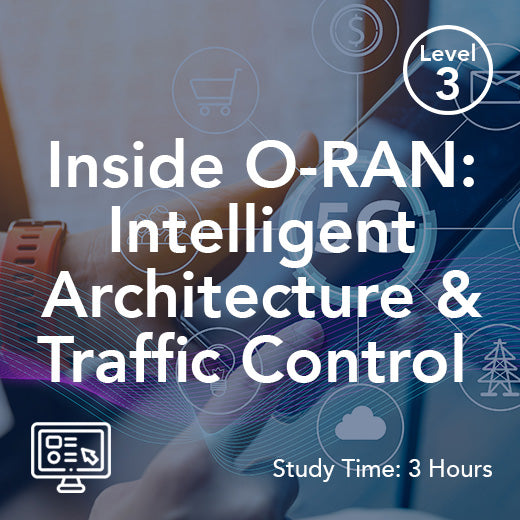How Does 5G Enable Smart Grid Technology?
- , by Stephanie Burrell
- 2 min reading time
The telecom industry in the UK is on the brink of a major transformation with the advent of 5G technology. As the next generation of wireless communication, 5G promises to revolutionize the way we connect and communicate, opening up a world of possibilities for businesses and consumers alike. One of the most exciting applications of 5G technology is its potential to enable smart grid technology, which has the power to completely reshape the way we generate, distribute, and consume energy.
Smart grids are intelligent electricity networks that integrate renewable energy sources, energy storage systems, and advanced communication technologies to optimize the generation and distribution of electricity. By leveraging real-time data and analytics, smart grids can automatically adjust energy production and consumption to match supply and demand, leading to increased efficiency, reliability, and sustainability.
So, how does 5G enable smart grid technology? The key lies in the ultra-fast speeds, low latency, and massive connectivity that 5G networks offer. With data transfer speeds up to 100 times faster than 4G, 5G can handle the massive amounts of data generated by smart grid devices and sensors in real-time. This means that smart grids can quickly respond to changes in energy demand and supply, ensuring a stable and reliable electricity supply.
Moreover, the low latency of 5G networks allows for near-instantaneous communication between devices, enabling smart grid systems to make split-second decisions to optimize energy flow. This is crucial for managing the variability of renewable energy sources like solar and wind, which can fluctuate unpredictably throughout the day.
In addition, 5G's massive connectivity capabilities mean that smart grid devices can communicate with each other seamlessly, creating a truly interconnected energy network. This enables advanced features like predictive maintenance, where sensors can detect potential issues in the grid before they occur, preventing costly downtime and ensuring a reliable energy supply.
The benefits of integrating 5G technology with smart grid systems are numerous. For consumers, it means a more reliable and resilient electricity supply, lower energy costs, and reduced carbon emissions. For businesses, it opens up new opportunities for innovation and efficiency, driving economic growth and sustainability.
In the UK, the government has recognized the potential of 5G-enabled smart grids and has invested heavily in research and development to accelerate their deployment. With initiatives like the Smart Systems and Flexibility Plan and the Industrial Strategy Challenge Fund, the UK is positioning itself as a global leader in smart grid technology.
As we look towards a future powered by renewable energy, 5G-enabled smart grids will play a crucial role in shaping the energy landscape. By harnessing the power of advanced communication technologies, we can create a more sustainable, efficient, and reliable energy system for generations to come. The possibilities are endless, and the time to embrace the potential of 5G-enabled smart grids is now.
Smart grids are intelligent electricity networks that integrate renewable energy sources, energy storage systems, and advanced communication technologies to optimize the generation and distribution of electricity. By leveraging real-time data and analytics, smart grids can automatically adjust energy production and consumption to match supply and demand, leading to increased efficiency, reliability, and sustainability.
So, how does 5G enable smart grid technology? The key lies in the ultra-fast speeds, low latency, and massive connectivity that 5G networks offer. With data transfer speeds up to 100 times faster than 4G, 5G can handle the massive amounts of data generated by smart grid devices and sensors in real-time. This means that smart grids can quickly respond to changes in energy demand and supply, ensuring a stable and reliable electricity supply.
Moreover, the low latency of 5G networks allows for near-instantaneous communication between devices, enabling smart grid systems to make split-second decisions to optimize energy flow. This is crucial for managing the variability of renewable energy sources like solar and wind, which can fluctuate unpredictably throughout the day.
In addition, 5G's massive connectivity capabilities mean that smart grid devices can communicate with each other seamlessly, creating a truly interconnected energy network. This enables advanced features like predictive maintenance, where sensors can detect potential issues in the grid before they occur, preventing costly downtime and ensuring a reliable energy supply.
The benefits of integrating 5G technology with smart grid systems are numerous. For consumers, it means a more reliable and resilient electricity supply, lower energy costs, and reduced carbon emissions. For businesses, it opens up new opportunities for innovation and efficiency, driving economic growth and sustainability.
In the UK, the government has recognized the potential of 5G-enabled smart grids and has invested heavily in research and development to accelerate their deployment. With initiatives like the Smart Systems and Flexibility Plan and the Industrial Strategy Challenge Fund, the UK is positioning itself as a global leader in smart grid technology.
As we look towards a future powered by renewable energy, 5G-enabled smart grids will play a crucial role in shaping the energy landscape. By harnessing the power of advanced communication technologies, we can create a more sustainable, efficient, and reliable energy system for generations to come. The possibilities are endless, and the time to embrace the potential of 5G-enabled smart grids is now.

































